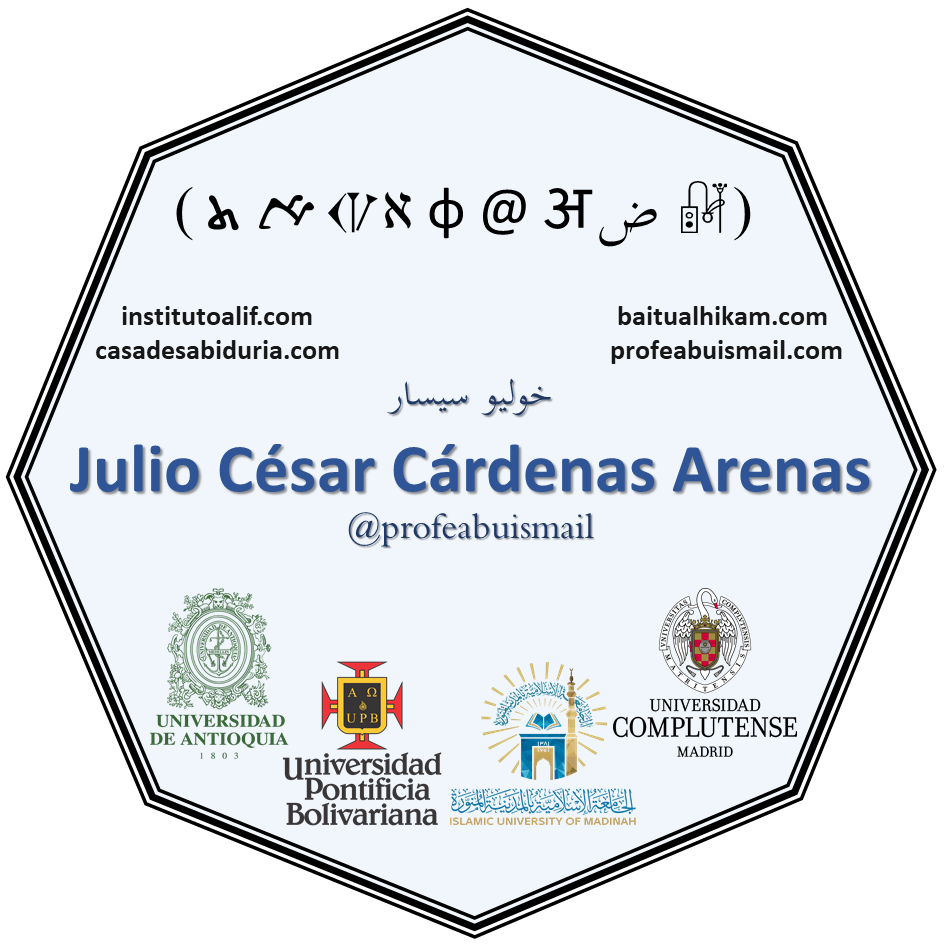Mr Julio César Cárdenas Arenas
The Influence of Ibn Taymīyah's Thought on Ibn Bāz and Ibn ‘Uthaimīn in the Current Relationship of Muslims with Jews and Christians inside Iqtida ’al-ṣiraṭ al-mustaqīm
Julio César Cárdenas Arenas is currently a PhD candidate in the Science of Religions (Spain) and is studying for a master’s degree in Islamic Culture and Dawah (KSA). He has a Masters of Catholic Theology (Pontifical University) and is a graduate in Arabic Language and in Islamic Theology (Islamic University of Madinah), Arabic Philology (Egypt) and Philosophy (Colombia). He has published books in Spanish about Islam for non-Muslims and comparative religions: How to understand Islam and Muslims? Principles to worship God, a Risalah of Islamic Theology / Mary, Jesus and his disciples, Theology between the Bible and the Qur'an / The creation and the Final Judgment, Apocalypses, Genesis, and the Qur'an.
The Influence of Ibn Taymīyah's Thought on Ibn Bāz and Ibn ‘Uthaimīn in the Current Relationship of Muslims with Jews and Christians inside Iqtida ’al-ṣiraṭ al-mustaqīm
The thought of Ibn Taymīyah (1263-1328) has indirectly nurtured fundamentalist theological discourses and extremist ideological interpretations that regulate interreligious relations in Arab and Western Islamic societies.
I analyse the commentaries of Ibn 'Uthaimīn (1925-2001) and Ibn Bāz (1910-1999) on Ibn Taymīyah´s book On the Necessity of the Straight Path (Iqtida' al-ṣiraṭ al-mustaqīm) about: 1. descriptions of Jews and Christians; 2. Islamic orders and prohibitions for Muslims; and 3. the use of legal and theological directives to encourage or reject religious diversity. My analysis reveals Ibn Taymīyah’s influence today on inter-religious and interpersonal relations between Jews, Christians and Muslims.
